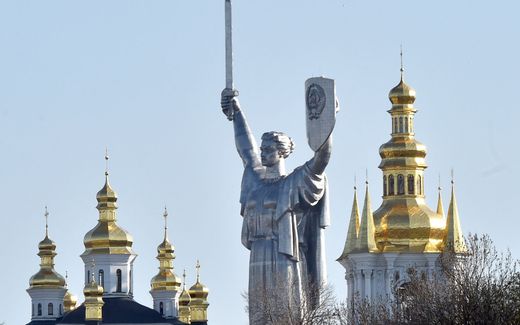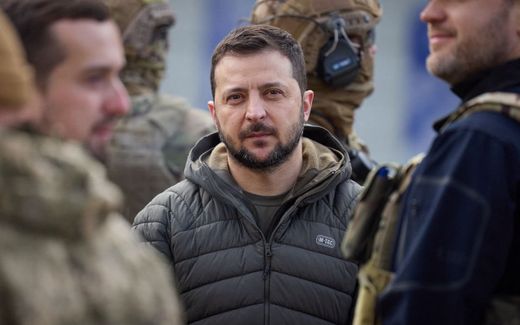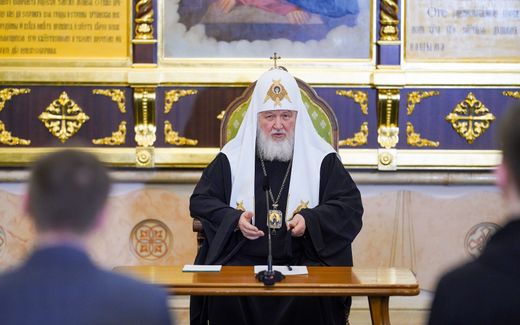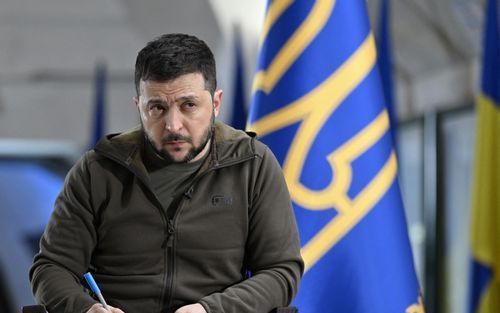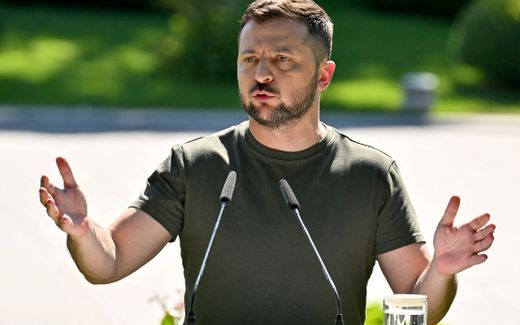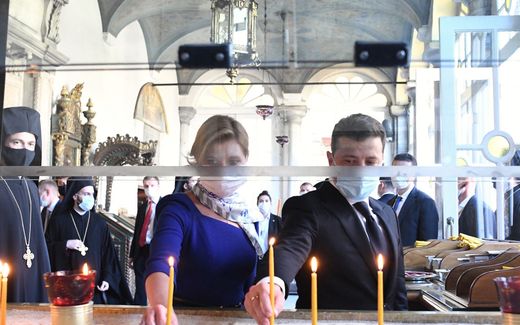Zelensky takes further steps against Ukrainian Orthodox Church
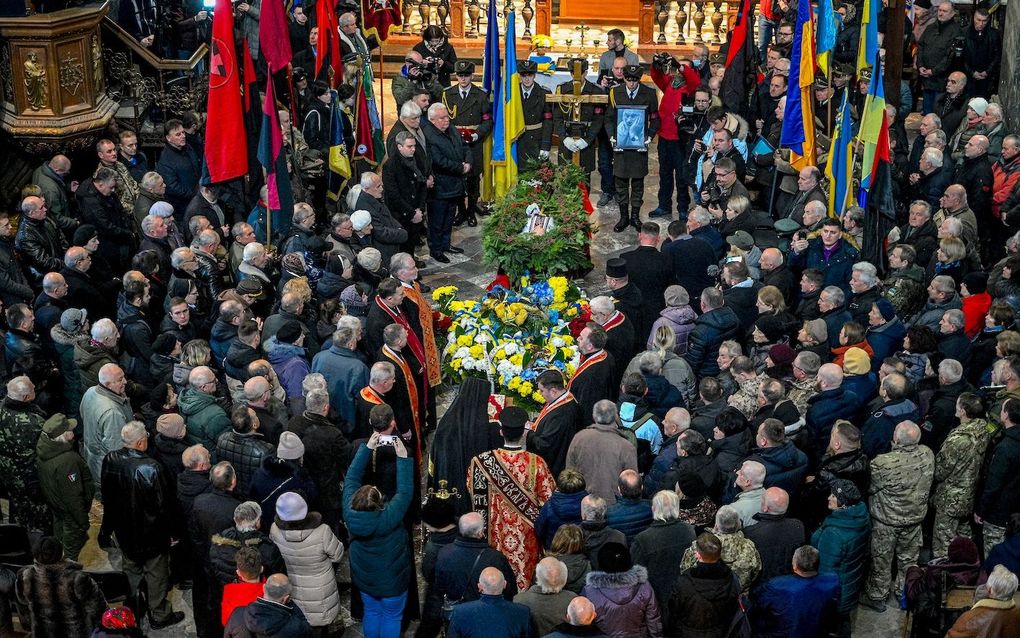
The Orthodox church has a central place in the Ukrainian society. But because of that, it is politicised and controversial. President Zelensky considers a ban on the church that is formally connected to the Patriarchate in Moscow. Photo AFP, Yuriy Dyachyshyn
Eastern Europe
The Ukrainian President Zelensky has announced sanctions against another seven leaders within the Ukrainian Orthodox Church (UOC). According to him, they are a threat to the security of the country. These sanctions come while the country is waiting for a bill to ban the UOC.
Two weeks ago, President Zelensky put another group of UOC clergy under sanctions. For five years, these priests and bishops are not allowed to take money out of the country, to own land, and their capital is frozen. This is reported by media as the Orthodox Journalists and Ria Novosti.
Another striking detail is that the government has dismissed Elena Bogdan, the leader of the State Service for Ethnopolitics and Freedom of Conscience, according to media reports. Mrs Bogdan is known for her opposition to a ban on the UOC. According to her, there might be pro-Kremlin clergy in this church, but it is difficult to ban the church as a whole.
The measures came after searches in several monasteries and UOC schools. The Ukrainian security services, SBU, claim to have found pro-Kremlin material there. However, there are rumours that this material has been planted there.
On paper
The UOC is under suspicion because of its link with the ROC, the Russian Orthodox Church. On paper, the church recognises the Moscow Patriarch Kirill as the ‘church father’. This link facilitates Russian influence, Zelensky says. The church has tried to remove the name Moscow from its statutes, although the Moscow Patriarchate has not recognised this. That means that, on paper, the connection still exists.
On the other hand, it is questionable whether this link between UOC and Moscow is something more than just canonically on paper. From the first day of the war, the UOC condemned the Russian invasion as a war. There has never been any vocal opposition against this position taken by Metropolitan Onuphry.
Soon after the invasion, however, the matter came into debate. Some city councils started to ban the Moscow-connected church. And also, the new Orthodox church, the Orthodox Church of Ukraine (OCU), asked for a national ban on the UOC. In many places, OCU believers claimed church buildings from UOC parishes. From the nature of the Orthodox faith, one church should have a monopoly on this title. Currently, the UOC still has 62 per cent of all Orthodox believers in the country in 12,000 parishes. However, these figures from the Ukrainian Parliament may not be up to date. It is clear, however, that the Orthodox faith is still the dominant factor in Ukraine.
Secular state
President Zelensky also announced a bill that will lead to a ban on the UOC. Two commissions within the Verkhovna Rada, the Parliament, have already given an early opinion. According to the Orthodox Journalists, the Humanitarian Committee has agreed with a ban.
The Legal Committee, however, has said this bill will lead to an acute religious confrontation in society. It is also against the Constitution, which guarantees religious freedom in the country. Also, international bodies such as the Council of Europe could condemn such a step.
The bill proposes to allow only those churches that will become subordinate to the new OCU to be called “Orthodox”. In the Ukrainian setup (which is similar to Russia), the law says which church can claim the title Orthodox or not. But the Legal Committee says that, according to the Constitution, Ukraine is a “secular state”, which forbids advantages for a particular religious body in the law. The committee also doubts whether it is wise to speak about “foreign religious organisations” in the bill. During the Soviet times, this concept discouraged membership of Protestant faiths.
Division
In the meantime, a second Ukrainian soldier has called on the authorities to solve the religious issue in another way. Two weeks ago, another serviceman warned of a split because of religious politics. On Monday, soldier Bohdan Grafov recorded an appeal in support of the Ukrainian Orthodox Church, which was reported by the Orthodox Journalists.
“In times of war, I consider such things inappropriate and only divisive for society”, Bohdan said. He reminded that “Russophilia” can be fought within the law. “Demonising the entire church is the way to internal strife. It is an encroachment on the sacred for many. I hope that the authorities will be wise enough to solve all acute issues constructively, without hurting the feelings of believers”, according to the serviceman.
Related Articles


